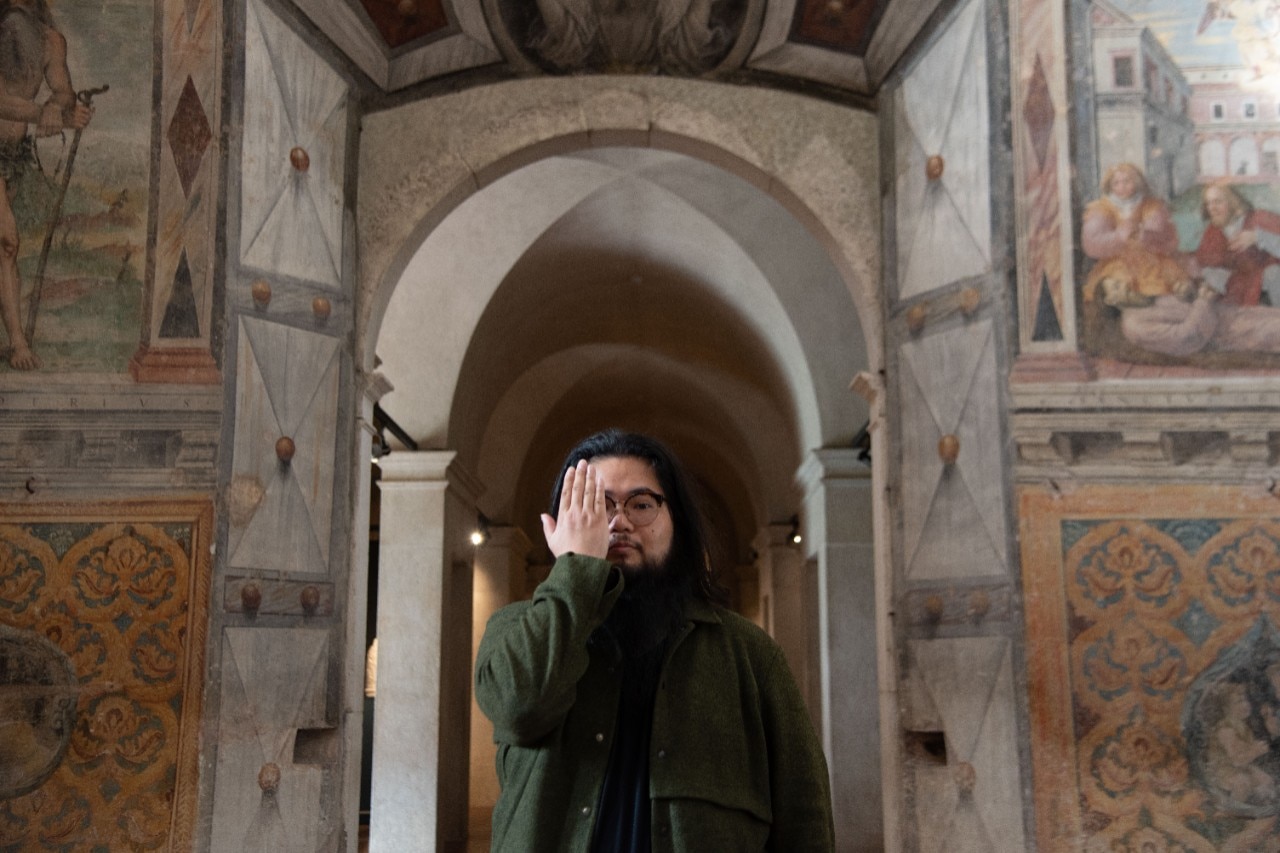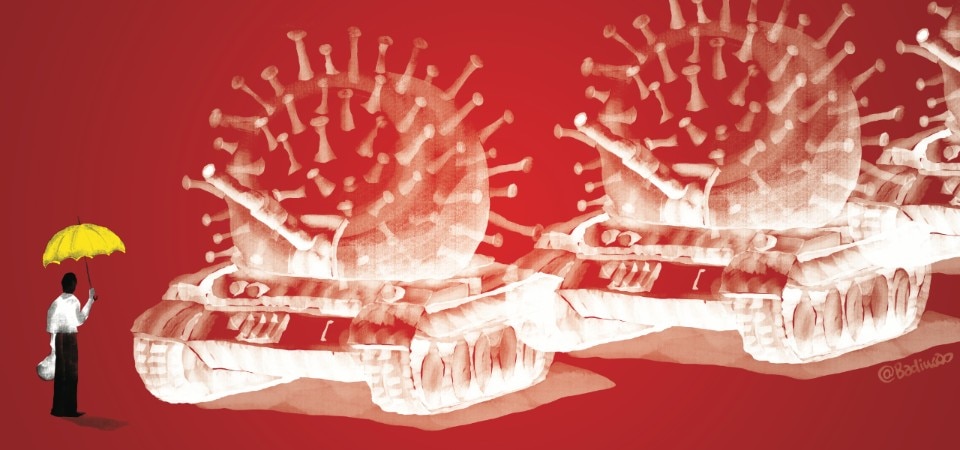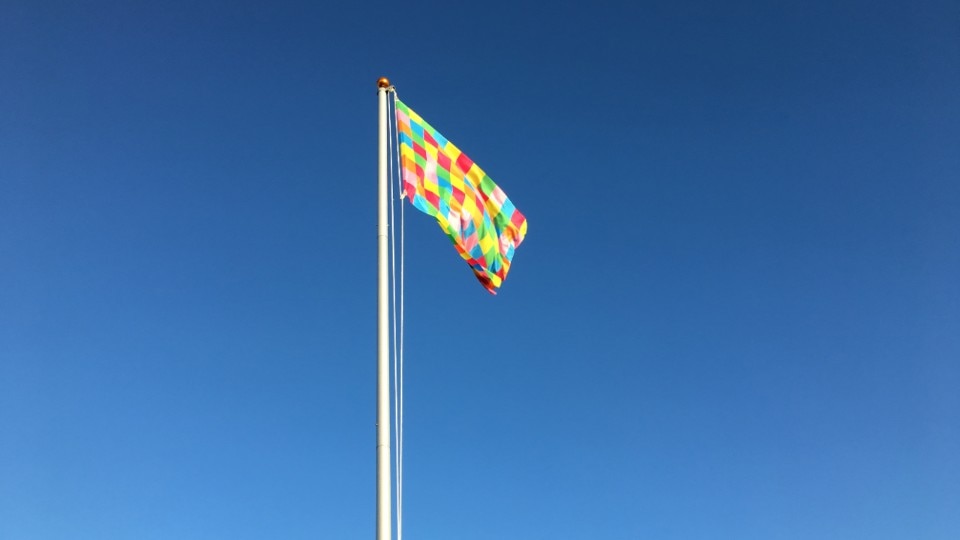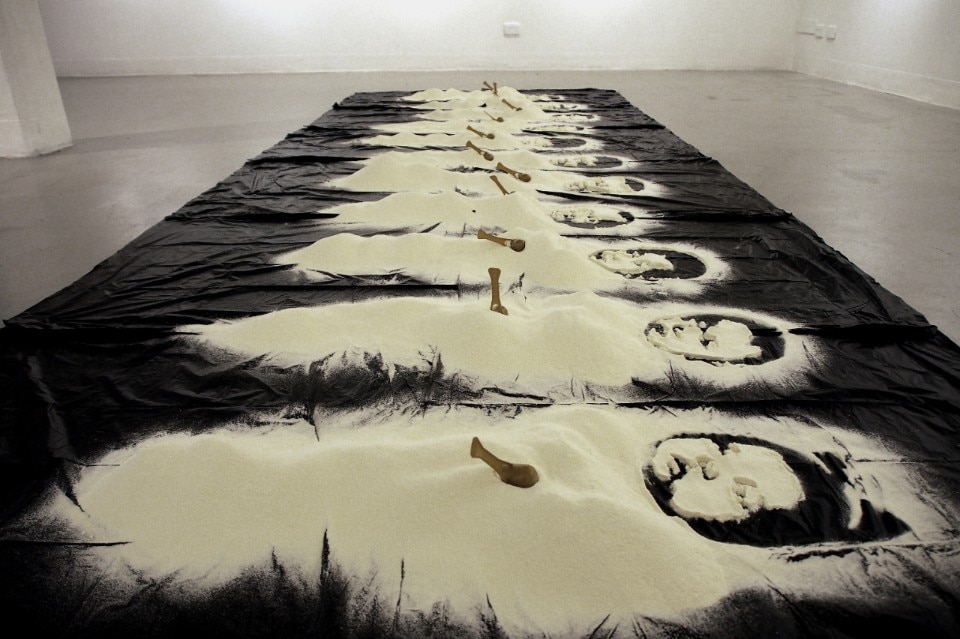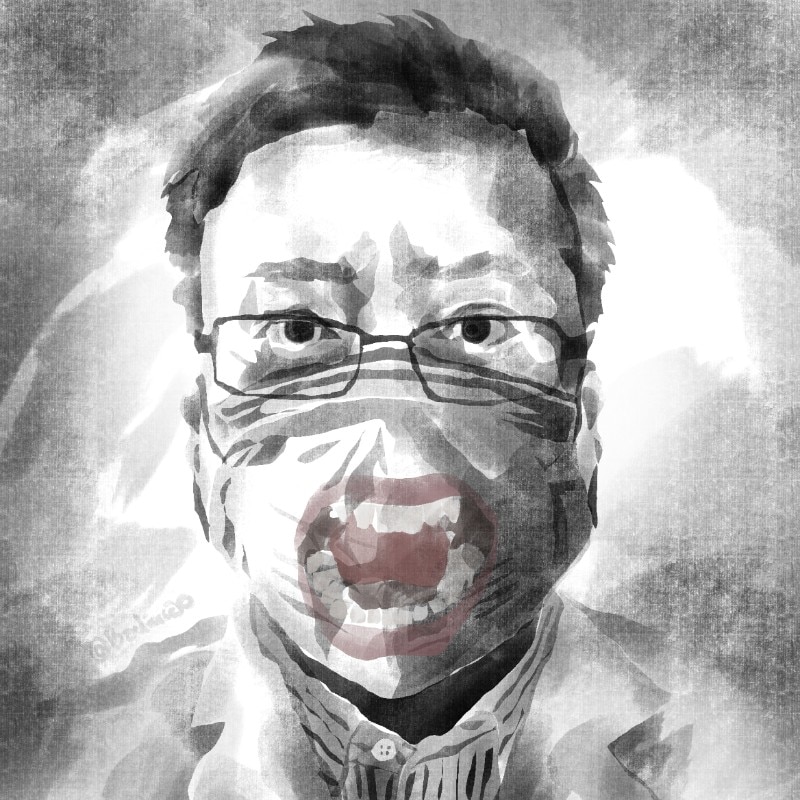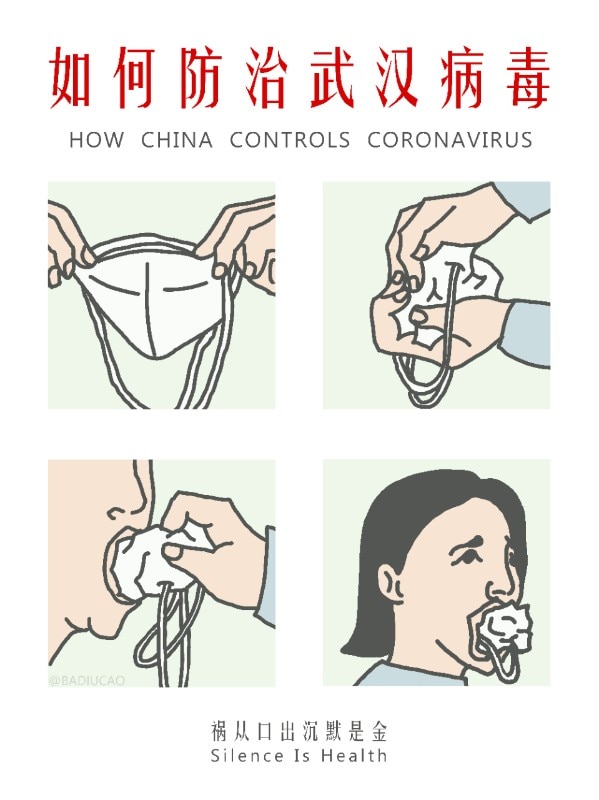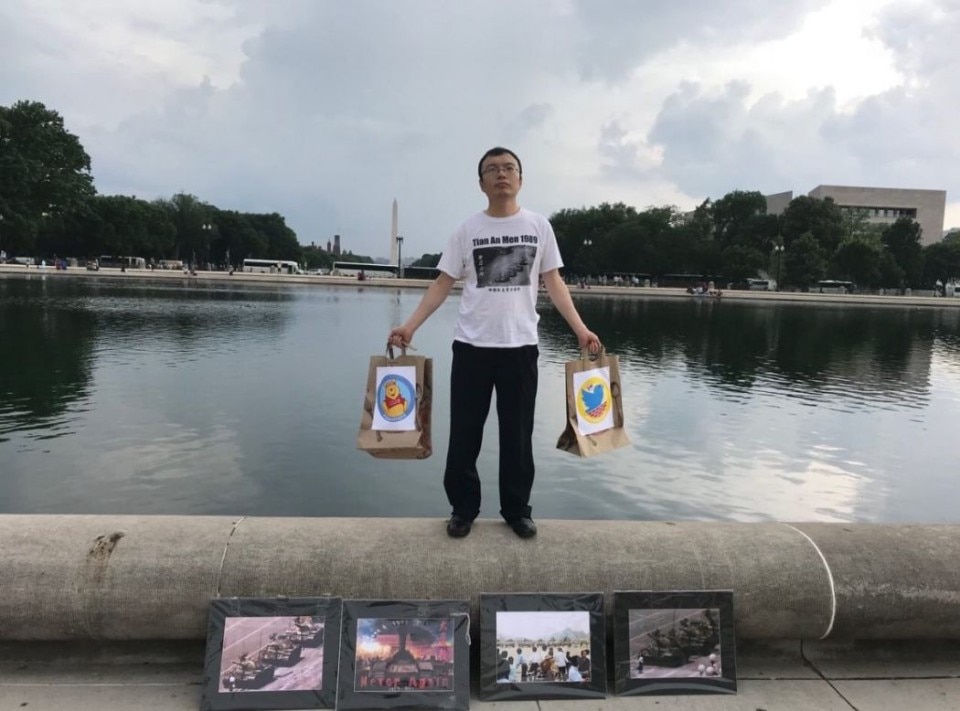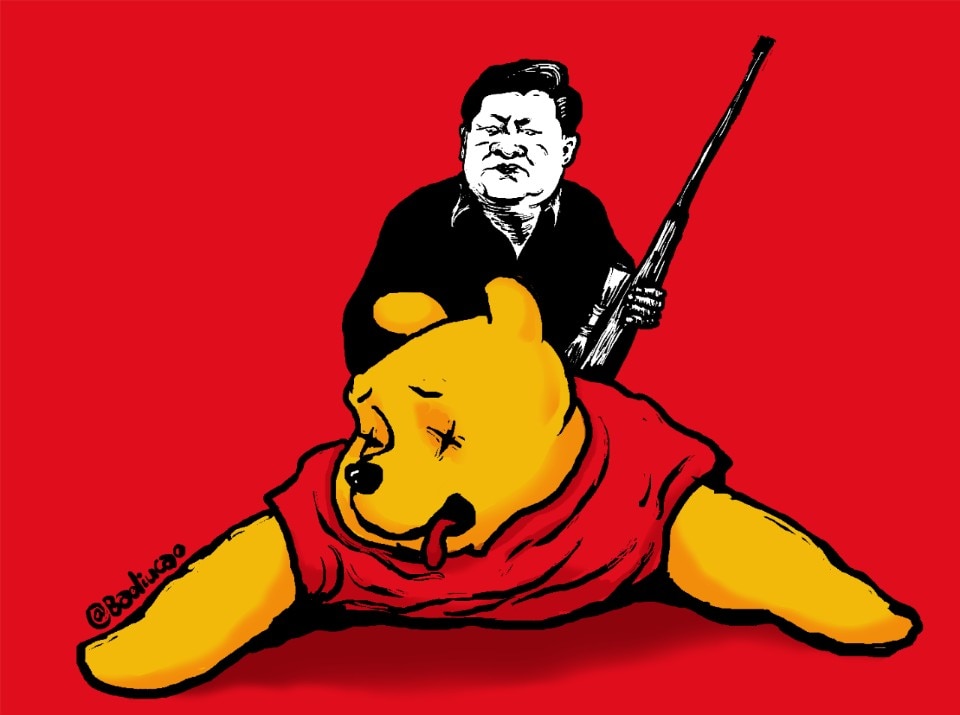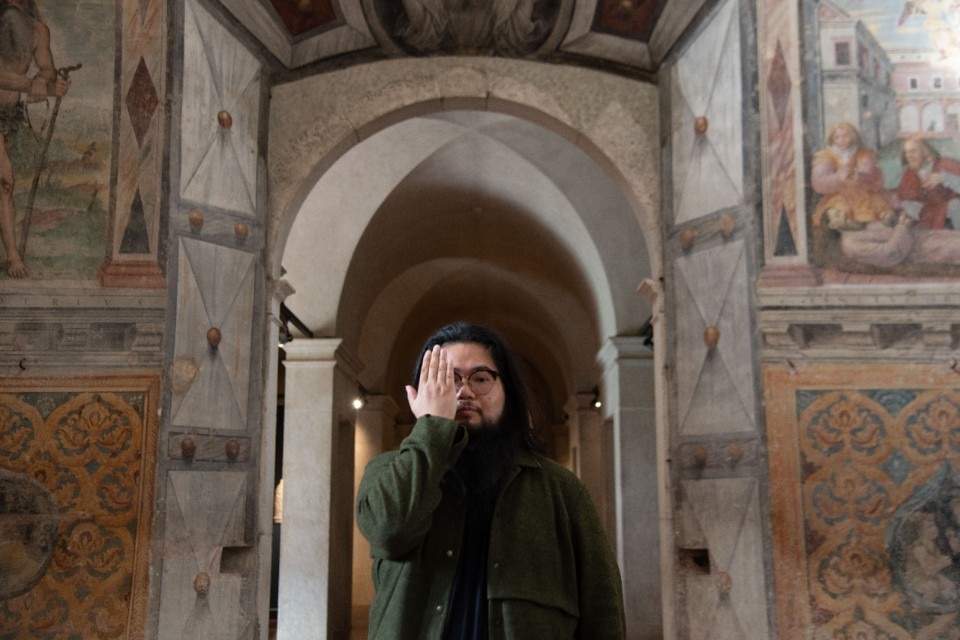With the patronage of the European Parliament and Amnesty International, China is (not) near is the first international exhibition by Badiucao, a Chinese dissident artist who has recently come under the spotlight for what can be defined as a diplomatic incident or an attempt to limit free artistic expression, depending on the perspective from which one wants to look at the event.
Badiucao – who challenges Chinese censorship daily with his twitter account @badiucao, which is followed by more than 80,000 people – is currently holding a solo exhibition in Brescia, which can be visited until 13 February 2022 at the Santa Giulia Museum. This event has caused quite a stir, to the point of almost becoming a censorship case after the Chinese government asked the mayor of Brescia Emilio Del Bono and the Brescia Museum Foundation to withdraw and censor the initiative because the artist’s works are defined as “full of anti-Chinese lies” that “jeopardise the friendly relations between China and Italy”.
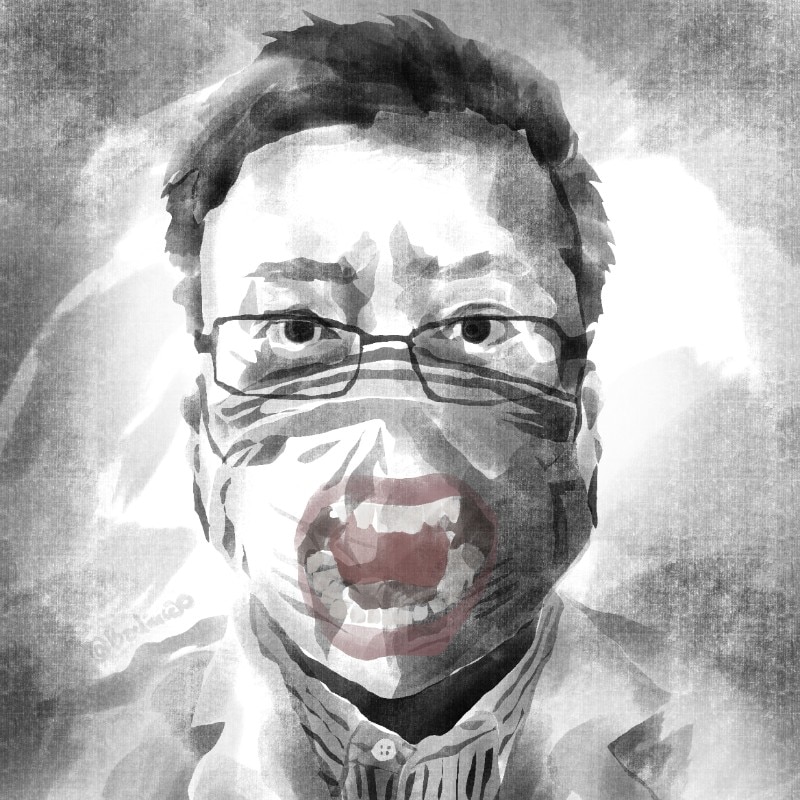
This is not the first time that Badiucao’s exhibitions have been censored: it happened in 2019 in Hong Kong and then in Sydney. This is a possibility that the artist-cartoonist, who has become internationally known thanks to social media through which he now spreads his art around the world, must have taken into account right from the beginning of his career. In fact, his stage name is a pseudonym he first created by mixing three words randomly chosen from a book in order to avoid revealing his identity. The artist soon realised that he also could never show his face, so he decided to move (in exile) to Australia, far away from his country of origin.
However, this great geographical distance didn’t stop Badiucao from pursuing his battle. The artist developed his research and his poetics by speaking out against all forms of ideological and moral control exercised by political power, in favour of the transmission of an unplagiarised historical memory. Born in Shanghai in 1986, law graduate Badiucao said he left China after watching a Taiwanese documentary on the repression of the Tiananmen Square protests, an event he was unaware of due to censorship in his country.
He therefore criticises governments that suppress freedom, but also the artists who should act also outside the micro-world of art, embracing activism and denouncing the atrocities and dangers of our time. Last but not least, the artist also focuses on the West.
In this direction, Badiucao comments on what happened in Brescia, underlining his idiosyncrasy for attitudes of tacit acquiescence, which normalise the structuring of anti-democratic societies such as China’s, ending up supporting it economically, with dynamics that are inseparable from the political ones: “I was expecting this: in Hong Kong, the government threatened me, my family, anyone who ever helped me. It would have been odd if it had not happened here too. The support I got from the Brescia Museum Foundation and the Municipality is quite unique, democratic countries often make compromises”.
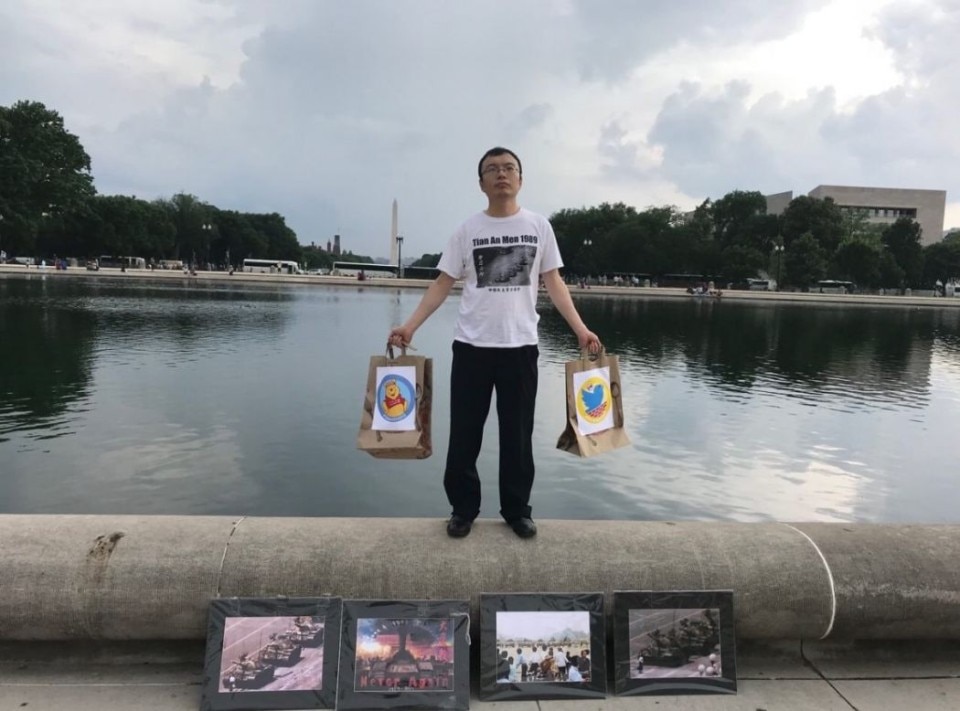
Best known for his irreverent cartoons against all forms of power, his billboards in public places and public participation art campaigns, Badiucao employs different languages capable of ironically evoking the “pop” spirit of communist propaganda, ranging from early works to more recent creations, such as installations, sculptures, videos and oil paintings, dealing with different themes divided into five sections, testifying to human rights violations and censorship – from the repression of the protests in Myanmar during the military coup of 2021 to the theme of the forced cultural assimilation of the Uighurs to the detailed artistic account of the protests in Hong Kong.
Among the sections of the exhibition curated by Elettra Stamboulis, the most topical one is the one dedicated to the Wuhan Diaries, which recounts the lockdown and the government’s reactions to Covid19 through anonymous accounts of what really happened, far removed from the official and self-celebrating rhetoric about an unparalleled success in controlling the epidemic, while concealing the atrocities carried out from the West, from locking doors from outside with iron bars to locking people inside their homes without food.
The exhibition poster acts as a premonitory sign. The title of the exhibition, China is (not) near, is graphically rendered by crossing out the negation “not”, which becomes the bearer of the artist’s poetics and of the exhibition operation. With its eight-hour time difference and its language made up of pictograms, the Land of the Rising Sun seems distant, yet in cases like this, we realise how much more present - and alert - it is than we perceive.
Who knows, on this occasion art might become an ambassador of human rights, highlighting the relationship between contemporary works and human rights, bringing to light the struggles of dissidents, activists and artists committed to fighting the restrictions on personal freedom and defending minorities. In the meantime, the Municipality of Brescia and the Foundation that manages the city’s museums have refused to give in to pressure from Beijing. As Laura Castelletti, deputy mayor of Brescia, puts it: “None of us in Brescia, neither in the city council nor among the citizens, had the slightest doubt about this exhibition going ahead. We have the desire and the will to protect art and defend artistic freedom”.
Opening image: Badiucao’s portrait. Courtesy ©Badiucao


